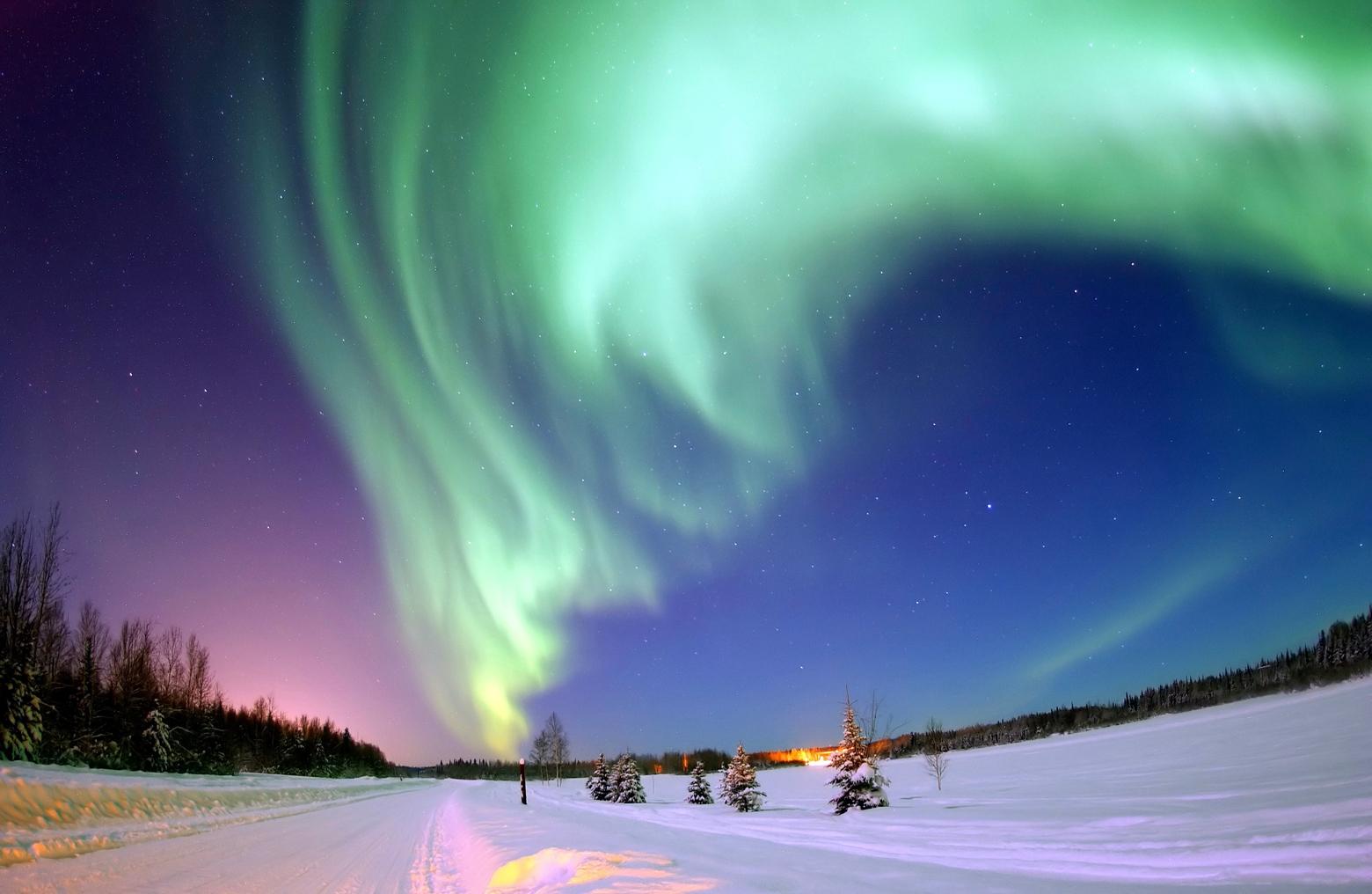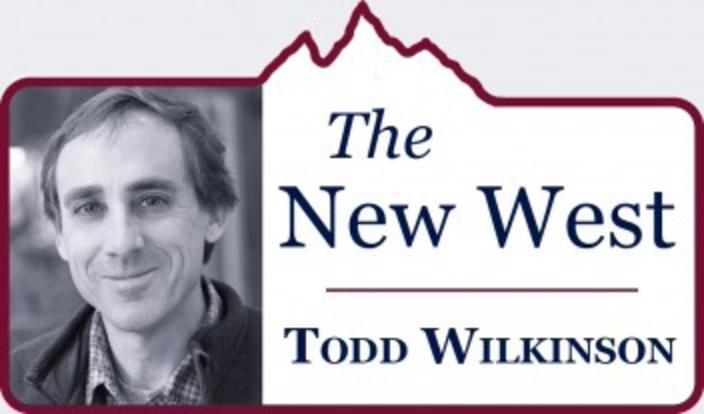Back to StoriesIs More Group “Awe” The Magic We Need To Save Greater Yellowstone?
February 4, 2022
Is More Group “Awe” The Magic We Need To Save Greater Yellowstone? Studies show that those who are more humble, giving and respectful of nature are better, more virtuous and likable people
By Todd Wilkinson
A few days ago, a flare on the surface of the sun sent a burst of radio-magnetic waves headed toward Earth. If you were paying attention and happened to reside in certain northern latitude locations, and ventured in the wee hours outdoors away from a city, you might have observed the emerald-hued glory of the Northern Lights, a.k.a. Aurora Borealis.
It got me thinking again about the power of such celestial delights that even in this age of A.I. and digital artifice still wow us. And I reflected back to that August morning when we in our approximate region were treated to the Great Eclipse.
If you were here in 2017 (ironically or not, Mountain Journal officially debuted on that day), what kind of sobering sensations fired across the ancient synaptic pathways linking your mind to body and spirit?
Quite possibly, the conjunction of moon and sun was, for some, just another one-off event, a been-there, done-that moment, enabling the seeker to boast forevermore of having witnessed a cosmic alignment yet holding little capacity for pondering its deeper meaning.
For others, the eclipse was a lesson in humility, summoning reflection on what the rendezvous might offer in making them better people.
Mother Nature gives us reasons to stand in awe every single moment. But could it be that by dwelling in the Greater Yellowstone Ecosystem, a region so resplendent with natural mysteries, we become desensitized sometimes, needing an eclipse or Northern Lights to remind us of the impact of awe?
We know, based on thickening reams of scientific evidence, that letting awe seep into our being can be transformational.
When awe happens on a mass level, experienced jointly by tens of millions at a time, could it—should it—result in greater appreciation and respect for the natural world?
While I was researching my book on Ted Turner, Last Stand: Ted Turner’s Quest to Save a Troubled Planet, a few years ago, there were several things I wanted to know: one was any correlation between Turner the fiscally conservative, socially-progressive billionaire and Turner the successful businessman who became a selfless conservationist and philanthropist.
For him, awe for nature played a pivotal role. As he was building the satellite TV cable channels TBS and CNN an internal impulse began taking hold. During the start of middle age, he deepened his connection to the wild outdoors by buying properties and protecting them with conservation easements. The reasons were amorphous yet instinctual.
As it turns out, science offers an explanation: People who spend more time immersed in nature tend to be more empathetic, kinder, gentler and more giving souls. As exposure increases over their lives, they become more capable of thinking not only about their own self-interest but across generations.
In Turner’s case, it resulted in a realization that by doing what one can to protect nature it also yields benefits for human communities. While still possessing a large ego, he derived enormous satisfaction from being magnanimous.
A few years ago a study titled “Awe, the Small Self, and Prosocial Behavior” was published in the Journal of Personality and Social Psychology. It corroborated other scientific findings showing that people who derive awe in nature admirably become better citizens.
“Awe arises in evanescent experiences. Looking up at the starry expanse of the night sky. Gazing out across the blue vastness of the ocean. Feeling amazed at the birth and development of a child. Protesting at a political rally or watching a favorite sports team live,” leader author Paul Piff from the University of California-Irvine with colleagues.
“Many of the experiences people cherish most are triggers of the emotion we focused on here— awe. Our investigation indicates that awe, although often fleeting and hard to describe, serves a vital social function. By diminishing the emphasis on the individual self, awe may encourage people to forego strict self-interest to improve the welfare of others.”
Another study titled “Approaching Awe, A Moral, Spiritual and Aesthetic Emotion”, featuring research by Dacher Keltner and Jonathan Haidt, noted this: “Fleeting and rare, experiences of awe can change the course of a life in profound and permanent ways,” they wrote. “Awe can transform people and reorient their lives, goals and values…awe-inducing events may be one of the fastest and most powerful methods of personal change and growth.”
The enemy of awe is hubris and the antidote for arrogance is humility—i.e. acceptance that we are not the center of the universe. Even for those who see themselves as Masters of the Universe in the business world, death which comes to everyone is the equalizer, reminding the most smugly self-important that, in the absence of good deeds left behind, they are no better than anyone else, including the lowest of the low.
What good deeds can be done on behalf of the most wildlife-rich ecosystem remaining in the Lower 48? If one isn't awed by the epic wildlife migrations—of elk, deer, pronghorn, even segments of Yellowstone bison— that still exist here at scale, then what does it say about the beholder? Looking around Greater Yellowstone, I have seen plenty of people, many with significant means, drawn to the awe of the region’s wild lands. Many of them care or profess to, upon encountering this place, but they don't know how to respond.
Once infected with biophilia and embracing conservation, I've seen people grow happier. In Latin, the term alteri huic means “to this other.” In English, it is the root of the word “altruism"—exhibiting selfless concern for the well-being of other humans, animals, and even places. Simply put, within the context of Greater Yellowstone, it translates to putting the best long-term interest of a place ahead of our desires to exploit it in ways that might do it harm.
With the eclipse half a decade ago, countless millions of dollars and mountains of human time and effort were expended simply to put people in a position to witness a natural event that arrived and passed within a couple of hours.
What a shame if these kinds of events do not result in our greater appreciation of real wild wildlife wonders in our own backyards. Wonders that, with continued exposure, produce better communities and generous citizens heeding the power of awe.




